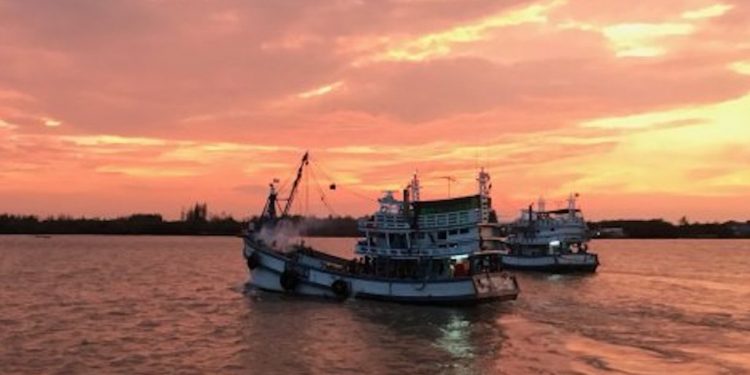The Gulf of Thailand mixed-trawl Fishery Improvement Project (FIP) fishery is the first FIP accepted onto the IP as part of the multi-species pilot project and is led by the Thailand Sustainable Fisheries Roundtable (TSFR).
This key advancement will facilitate improvement, allow for the testing of criteria in complex multi-species fisheries and enable producers of marine ingredients to demonstrate their commitment towards responsibly sourced raw materials.
‘Marine ingredients are important to the seafood and aquaculture supply chain in Thailand. We are delighted that the Gulf of Thailand mixed-trawl Fishery Improvement Project (FIP) is taken one step further. This progress reaffirms our real intention to promote responsible fisheries in Thai seas. Since 2014, we have made every effort to ensure responsible sources of marine ingredients, including seeking for the standard we can use as a benchmark. This was very challenging since there was no standard that can apply to complex multi-species fisheries, like Thailand and other countries in Southeast Asia at that time. We have been fortunate enough to be collaborating with MarinTrust since 2016, when our journey started,’ said Vorapong Iamtrakul, FIP Coordinator for the Thai Sustainable Fishery Round Table (TSFR).
The objective of the multi-species criteria is to enable the assessment of highly complex fisheries in which sometimes hundreds of species are regularly caught. The criteria have been developed by experts and are based on ‘best practice’ fisheries management as specified in international norms and guidance including the 1982 Convention of the law of the Sea (UNCLOS) and the 1992 Convention on Biological Diversity (CBD) as captured in the 1995 Food and Agriculture Organisation of the UN (FAO) Code of Conduct for Responsible Fisheries (CCRF), with additional input from the 2006 regionalisation of the code for Southeast Asia (Regional CCRF).
‘On behalf of the TSFR, we are so thankful to MarinTrust for their continual support and consultation, Agricultural Research Development Agency (ARDA) as a main funder for the FIP development stage, and last but not least the Department of Fisheries (Thailand), who provided essential information and concerted effort all along. We believe that our FIP, especially in its implementation phase, will provide useful information for the development of multi-species assessment criteria as well as a clearer picture on multi-species fisheries management, by considering its adequacy, suitability and practicality,’ Vorapong Iamtrakul said.
The pilot project will enable MarinTrust to test the methodology in active fisheries so it can be refined and ultimately develop a fully robust and realistic set of criteria to eventually include within the full MarinTrust fishery assessment.
‘This recognition is highly significant. TSFR, supply chain actors and MarinTrust are showing real commitment to responsible sourcing in a very complex fishery,’ said Dan Lee, Chair of the Multispecies Pilot Steering Group.
During the Improver Programme and pilot project process, the FIP will have to meet a series of time-bound improvement milestones, specific to the Fishery Action Plan, demonstrating positive improvements within the fishery with the ultimate aim to apply for full MarinTrust Approval once all the improvements have been implemented.









